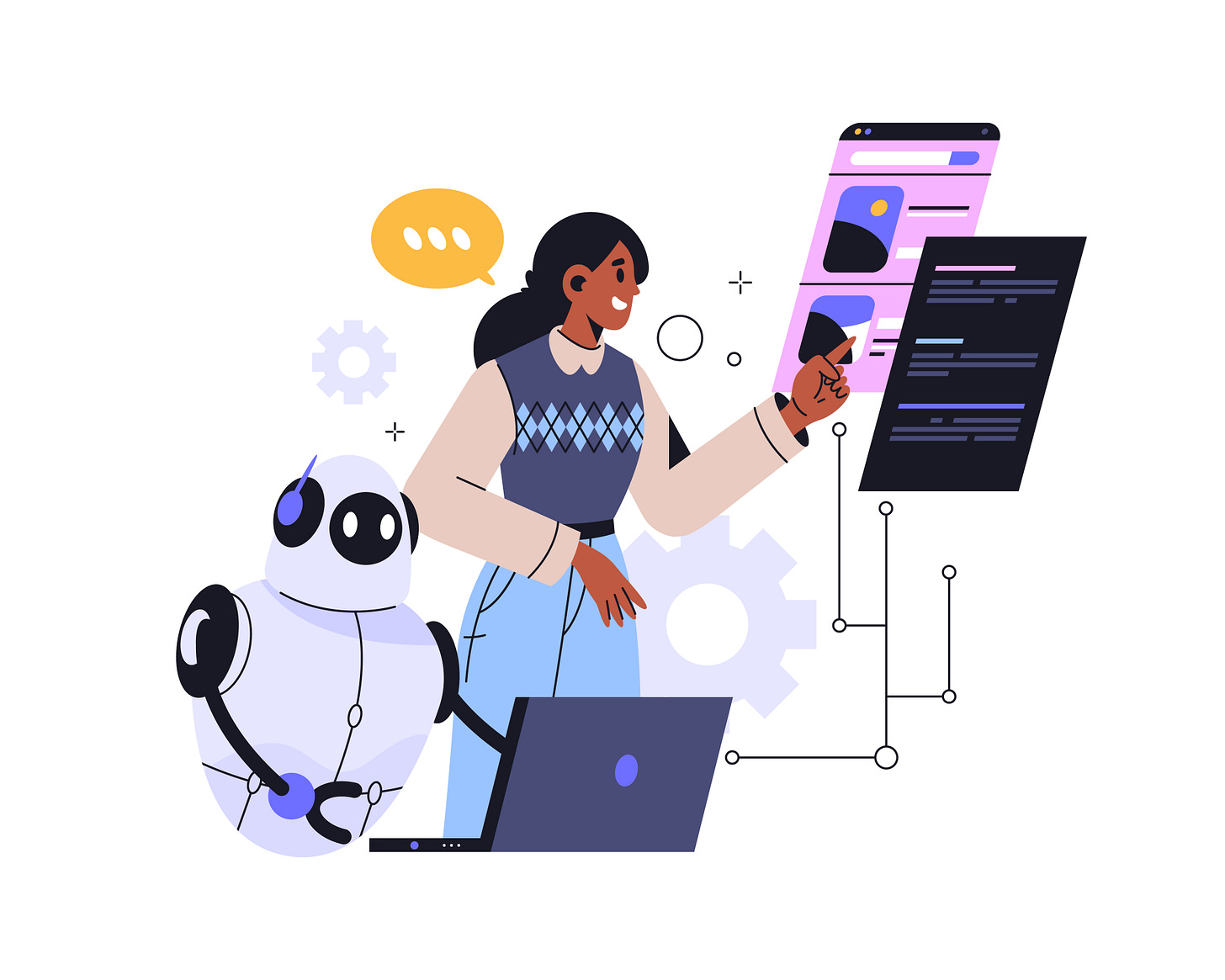AI to the Rescue: Fix Your Slow PC and Clean Up Digital Clutter
Discover how AI tools like ChatGPT can troubleshoot tech issues, speed up your computer, and organize your files—no IT degree required.
The Struggle Is Real
I was in a hotel room, on a trip to visit my son, with just a small window of time to knock out some work before my wife and I headed out to meet him. Laptop open, Diet Mt. Dew ready, everything was set. Except, of course, for the part where my computer refused to cooperate. No WiFi connection. No clear reason why. Just the digital equivalent of a toddler crossing its arms and saying, "Nope."
Now, I could have gone full meltdown mode—restarting the router I didn’t own, clicking through random settings like I actually knew what I was doing—but instead, I asked ChatGPT. A few questions later, I had a step-by-step guide to troubleshooting the issue, complete with the right driver to install, all in plain English. In just a little bit, I was online, work done, and ready to enjoy time with my son.
That’s when it really hit me: AI is the IT support I always wished I had—no long hold times, no condescending "Did you try turning it off and on again?" Just solutions, fast.
And if AI can help with WiFi woes, it can definitely help clean up a sluggish, messy computer too.
AI as Your Personal IT Assistant
Let’s be honest: computers never crash when you’re just scrolling through social media. They wait until you actually need them. Instead of digging through confusing tech forums and hit-or-miss YouTube tutorials, just ask ChatGPT.
Here’s how AI can be your IT assistant:
Troubleshooting issues in plain English – If your WiFi’s glitchy, your screen keeps freezing, or your computer feels slower than dial-up, AI can help you fix it.
Finding the right driver – Instead of deciphering cryptic error messages, just ask AI: “My Bluetooth isn’t working. What driver do I need?” It’ll help you locate the right one and even explain how to install it.
Command-line help without the fear factor – Ever seen tech support folks type out mysterious code like they’re hacking into the Pentagon? AI can break that down for you step by step, so you actually know what’s happening instead of just hoping for the best.
Example Prompts:
“My laptop keeps overheating. What could be causing this, and how can I fix it?”
“My computer is running slow after a Windows update. What steps should I take to improve performance?”
Bottom line: AI doesn’t replace tech support, but it can make you feel like you’ve got a personal IT guru on demand.
Now that we’ve tackled common troubleshooting issues, let’s talk about another silent culprit behind slow computers: digital clutter. Just like a closet crammed with old clothes and mystery boxes, your hard drive fills up with forgotten files and background programs that drag down performance.
Cleaning Up the Digital Junk Drawer
Your computer is a lot like a closet. Over time, it fills up with junk you forgot about. And just like shoving everything into a corner isn’t the same as organizing, deleting random files won’t necessarily fix the problem.
Here’s where AI steps in:
Finding and removing unnecessary files – Just ask AI: ‘How do I free up space on my hard drive?’ It’ll walk you through clearing temporary files, like old Windows updates that pile up in the background, uninstalling that budgeting app you used once, and tracking down space-hogging folders filled with forgotten downloads.
Detecting what’s safe to delete – Not sure if a file is important? Ask AI before you delete it for good.
Stopping background programs from slowing you down – AI can help you identify what’s eating up memory—like that old photo-editing app you installed once and forgot about—and guide you through disabling non-essential startup apps.
Example Prompts:
“How can I safely clean up my computer without deleting important files?”
“What are common unnecessary files I can delete to free up space?”
A clutter-free computer is a faster, happier computer. And one that won’t betray you the next time you need it. Once you’ve cleared out the digital cobwebs, the next challenge is keeping things organized. Because let’s be honest—just deleting random files won’t stop your desktop from turning into a chaotic mess of screenshots, downloads, and mystery folders labeled ‘Stuff.’ That’s where AI can help you get your digital life in order.
Organizing Files Like a Pro
Raise your hand if your desktop looks like a digital yard sale. (No judgment—I’ve been there.) Finding the right file can feel like an archaeological dig. Luckily, AI can help you put things where they belong without the hassle.
Since ChatGPT and similar LLMs don’t have direct access to your files, here’s how you can still use AI to make organization easier:
Smart file search with better queries – Instead of manually searching, you can ask AI to help craft advanced search queries for your system. Example:
“How do I search for all Word documents created in the past six months on Windows?”
“How can I find large video files hidden deep in my folders?”
Automating file organization with AI-generated scripts – If you’re comfortable with tools like PowerShell (Windows) or Automator (Mac), AI can help you generate scripts that auto-sort files based on name, date, or type.
“Can you generate a PowerShell script to move all PDFs into a folder called ‘Documents’?”
“How do I create a shortcut to automatically sort downloaded images into specific folders?”
Email decluttering guidance – AI can suggest smart filters and rules to keep your inbox under control—like auto-sorting all those ‘limited-time offer’ emails from stores you shopped at once five years ago. Example:
“How can I automatically move promotional emails to a separate folder in Gmail?”
“What’s the best way to unsubscribe from spam without losing important emails?”
With your computer cleaned up and files neatly in place, you’re not just avoiding frustration—you’re saving yourself time. And that’s really what AI is all about: reducing tech headaches so you can focus on what matters, whether it’s work, family, or just not wanting to throw your laptop out the window.
More Time, Less Tech Headaches
AI isn’t magic, but it’s pretty close when it comes to fixing frustrating computer issues. Need to speed up a slow laptop, clean up clutter, or fix a surprise crash? AI gives you clear, step-by-step help—no computer science degree required.
Next time your computer gives you grief, try asking an LLM for help. It might just save your work session (and your sanity).
Now, if you’ll excuse me, I’ve got a digital closet to clean up.




